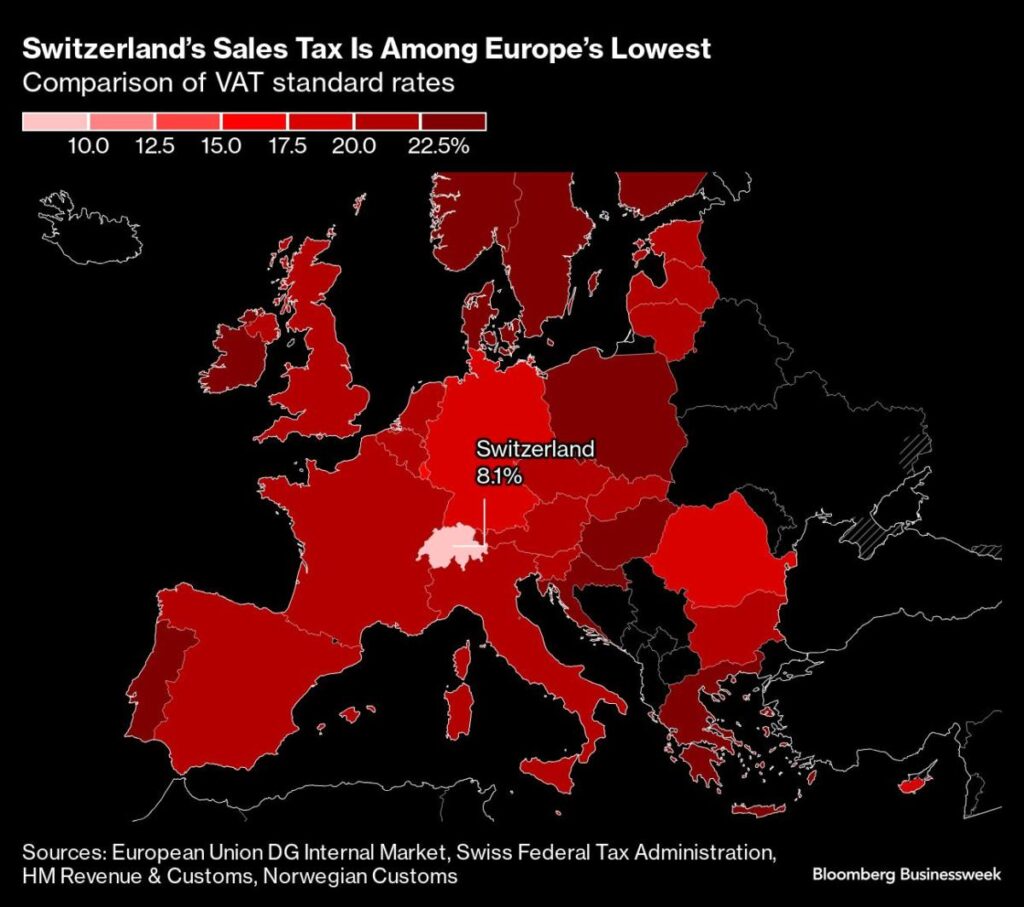In a significant move to bolster pension benefits, the Swiss government has proposed a modest increase in sales tax by 0.7 percentage points starting in 2026. This proposal is rooted in the recent plebiscite in which Swiss voters overwhelmingly supported the introduction of a 13th annual payout for pensioners, marking a historic progression in the country’s social welfare system. Under the government’s plan, the general sales tax rate would rise to 8.8% from the current 8.1%, while the reduced tax on hotel services will see an increase to 4.2% from 3.8%. Additionally, the tax rate on essential goods would rise to 2.8% from 2.6%. The proposed changes are pending parliamentary approval and must also be confirmed via a referendum, echoing the democratic ethos that governs Swiss legislation.
The decision to favor a sales tax increase over raising wage contributions for financing the pension enhancements reflects the Swiss administration’s strategy to maintain a competitive tax landscape, which is among the lowest in Europe. This approach seeks to balance the need for increased funding for pensions while minimizing the impact on the middle and lower-income brackets who might be affected more severely by wage contributions. Swiss voters’ backing in March was pivotal, as it demonstrated a strong public mandate for enhancing social benefits through democratic means rather than relying solely on government initiatives. The proposed sales tax increase, expected to educate the public on the significance of pension reforms, could set a precedent for future social welfare discussions in Switzerland and possibly elsewhere.
In addition to the sales tax hike, the Swiss government announced measures to tighten regulations around the importation of goods from bordering countries. Starting January 1, the daily tax-free limit for individuals bringing goods, especially groceries, from neighboring nations—France, Germany, Italy, and Austria—will be halved from 300 francs ($174) to 150 francs. This decision seems to stem from a desire to protect local industries and consumers by limiting access to cheaper imported goods. Swiss citizens, facing some of the highest food prices in Europe due to tariff protections for national agricultural products, often find it economically viable to shop across borders, prompting the government to introduce these restrictions.
The combination of proposed tax increases and import restrictions highlights the Swiss government’s delicate balancing act between supporting social welfare programs and sustaining economic viability for its citizens. The measure under consideration to raise sales tax hasn’t been universally accepted, raising concerns about its potential effects on consumer behavior and economic activity. Critics argue that higher sales tax may exacerbate the challenges faced by the same demographic groups that social programs intend to assist. As consumer sentiment fluctuates with rising prices, economic analysts will be watching closely how these reforms affect both spending patterns and the broader economy.
The Swiss economy, known for its resilience, now faces a critical juncture as it navigates these proposed changes. Maintaining the country’s relatively low taxation levels while increasing welfare funds represents a significant challenge. Additionally, the heightened import restrictions may lead to further inflationary pressures, particularly on food prices, if residents start to face limited options for affordable grocery shopping. With the approval of the sales tax increase and import adjustments pending through legislative and referendum processes, public discourse will likely intensify around the implications of these policies and the larger question of sustainability in the social safety net.
In essence, the Swiss government is attempting to forge a path that honors democratic decisions while ensuring the economic stability of its citizens. The balance between raising funds for pensions and managing consumer prices, particularly in food, will be critical as these proposals progress. Observers and citizens alike will need to remain engaged in the evolving conversation about social welfare funding, taxation, and the overall economic health of Switzerland. The outcome of these policy changes could have lasting repercussions for the nation’s approach to social benefits, the economy, and the quality of life for Swiss citizens.

